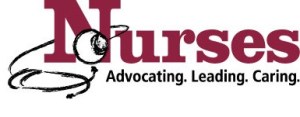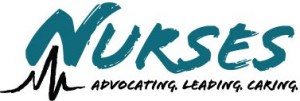1,000 Shades of Nursing: Why are we “really” Celebrating Nurses Week?
There was an interesting tweet chat taking place this evening with regards to Nurses Week and how everyone celebrated their week or reflected on their profession. Several great view points were offered up. My own perception of Nurses Week is that it is a metaphor for every way our profession has stagnated, failed to progress, remaining fractured and at odds with itself about where it should be and how it should get there. Hell, we’re still trying to bridge the gap between academic nursing and clinical nursing. It’s not difficult to empathize with some of the views raised this evening: The disdain with the recycled food offerings, the traditional ice cream social that makes some of us seethe inside, the hospital logo stamped on nursing “swag,” the lack of any gifts of appreciation, the “lumping in” of Nurse Week with “Hospital Week,” or whether we even need the proverbial “pat on the head” as one nurse blogger put it. I’m conflicted: As a profession—HOW are we leading, and HOW are we advocating?

Truth is, as our healthcare system has become more profit driven, so has the corporate model for care. Every corporation has a team of administrators who design and implement strategic goals so they can reach the ideal vision they have for their organization. Over the years, our profession has been redesigned and groomed to fit in with that ideal. What’s happening in hospitals, and how we are viewed or treated is a direct reflection of the current state of the healthcare system and healthcare politics. Those values you’re taught—regardless of whether you agree with them or the hospital’s culture—become who you are supposed to be and expected to be within that corporation. They need you to think and be and believe a certain way so that they can accomplish their goals and succeed toward their vision. Autonomy? No. Any kind of autonomy is always a perceived threat because it leaves room for interpretation by employees that they have a say in how an organization runs or how it accomplishes its goals for the future—in a nutshell, autonomy fosters empowerment and knowledge and opposing views, views that question the “status quo.” For instance, the color blocking of scrubs– It isn’t just so patients can recognize nurses. Just as any corporation has a brand image to maintain—so do hospitals. You become part of the brand, the image, the package that they are selling in an increasingly cut throat and competitive market.
So, what does this have to do with nursing? Simple. We have no seat at the highest levels of policy making that involves our practice or the care of our patients. We are talking about advancing Nurse Practitioners as primary care providers when we as entry level nurses can’t even practice to the fullest extent of our licensure at the bedside. Furthermore, the Nurse Practice Act even varies in all 50 states. Why? Because we as a profession haven’t learned to function as one unified, strong, independent entity that goes to battle for its standards of practice and for the tenets upon which it has been built. We censor each other. We hurt each other. We battle amongst each other. We jockey for power. The fact that nurses I know now turn the other direction instead of speaking up in the best interests of their patients should be alarming enough, signaling a serious erosion in the moral fabric of our profession—not to mention its integrity.

Let’s take a moment to examine Nurses Week. How has it changed over the years? Has it evolved with the times? With the profession? I’m going to boldly say no. Nurses Week is another example of what is done to pacify us within the corporate world—to make us “feel better” or feel ‘less invisible.” I don’t like lip service, and I don’t like smoothing over major problems within our profession with cutesy nurse sayings on a mug, or a backpack with a hospital logo stamped on it accompanied with a cold, clinical, impersonal preformed “thank you email.” I’d settle for a clinical ladder that affords me the opportunity to be creative, learn, grow, and advance within my profession and within an institution (not subject to the notions of popularity or kissing up to anyone). I’d be thrilled with the chance to research and design patient care policies that are not privy to administrative officials butchering them until they have taken all the nursing out of the policy and divided the tasks up to ten different people. But, I digress, those work environments are far and few between nowadays. I’m sure many of you could agree that there remains an ever growing gap between the management and “some” nurse educators who spend more time in their offices every day than they do in the trenches with their staff. This would be a perfect illustration of how I perceive the upper echelons of our profession are so disconnected from us as bedside nurses. Could they really “survive” a 12-14 hour shift with us? Could we easily hand over half of our workload to them and confidently believe they could handle it? If the answer is no, then how can they relate to who we are and what our concerns are?
Nurses Week, to me, is a very big roaring metaphor for the uppers to make the lowers feel like “all is well and all will be just fine if you keep on doing what you’re doing.” But yet, many of us can’t even decide what Nurses Week should “look like” to fit the times we are in with regard to technological advances, increased knowledge base, and the risky responsibilities of clinical bedside nurses. This, too, is representative of the fractures within our own profession—so many specialties and groups and views and “ways” and no overall consensus on what we should do to more appropriately and authentically celebrate a profession so noble, so complex, so “American as apple pie.” Furthermore it seems we can’t even begin to decide what or if we should receive anything for Nurses Week from our employers…some argue it’s just insulting to try and even dignify the enormity of what we do and the lives we touch by thanking us with a mug, a piece of cake, a banner, or a pin. Others enjoy the tangible gesture and value what it represents. I can’t say I disagree with either view.

I don’t dislike or disapprove of celebrating Nurses Week, or Nurses Day, or even a Nurses Month …What I do disagree with is allowing a profession so large, so strong, so knowledgeable and exquisitely timeless to become swallowed up in tired, reformatted logos or what some organizations now call “Hospital Appreciation Week,” which is—yes—another example of how corporations keep their employees situated and categorized so everyone fits in a nice little politically correct box. What I take exception to is promoting a Nurses Week that has remained the same year after year. What I can’t understand is why we aren’t utilizing Nurses Week each year to perform a thorough and honest nursing care plan on our own profession to see just how far we have come, or haven’t come, in the growth and evolution of our profession. With every Nurses Week, there should be some sort of critical appraisal of what we’d like to accomplish by Nurse’s Week next year—and celebrate THAT GOAL REACHED.
We as a profession can talk a great game. We know all the glittery, shiny, powerful things to say, and how to look saying them. We’ve mastered how to walk and talk the inspirational stuff (with power suits and stilettos no less). We also know when and how to toss about buzzwords like “innovation, patient centered care, interdisciplinary model of care, and evidence based practice” —but are we doing the down and dirty and difficult work to reach all the goals of the hundreds of nursing initiatives out there? Are we running up against wall after wall taking the hits it takes to get to where we need to be?? Again, I say no. We are worried about disapproval, we are afraid for our jobs, we are afraid of not fitting in with our peers and not being the same as everyone else, or our leadership positions being tarnished. We don’t want to be the “one” that rocks the boat and gets targeted at work. What has happened to us that we can’t be unique, creative, authentic individuals with great ideas and a voice to see them to fruition?

The beautifully packaged and well thought out nursing initiatives are *always* subject to the approval and revision of corporate hospitals all over the country. If initiatives don’t contribute to the hospital’s strategic plan (culture)—forget about it. It doesn’t matter how good an initiative is for nursing or for patient care. We all know that. We just don’t talk about it, and we don’t stand up to do something about it— or the whittling away of our role at the bedside to a less than desirable one. We stay silent, we remain submissive, we continue on about our shift…..take vital signs, admit the patient, discharge the patient, run the call lights, give the meds, assess the patient, clean the patients….but shhhhhhhhh! Don’t dare take initiative and show some leadership or offer new ideas…because as I’ve been told by one previous manager “your ideas just don’t fit in with the culture. So don’t offer them anymore.” Really? Shame on me for getting an MSN thinking I could use it.
This is the reality. This is why Nurses Week remains the same year after year with just a tired repackaging of presentation, and it’s why our profession will continue to sit in its nice little chair at the desk, raising its hand politely in hopes of getting called on by the illustrious teacher from whom we seek approval and validation. Can we stop pretending; stop sweeping our major issues under the rug, stop whining at the nurse’s station every day about how we are mistreated and unheard and unappreciated?… Is it even in the realm of possibility to imagine that every single one of us can, in honor of “our week;” step up, show the pride and love I know we all have for nursing, and do something small that creates a new beginning?
THAT—would give rise to a reason for celebrating what we do, who we are, and the tremendous transformational power we have yet to tap to improve our profession and the quality of patient care.


No comments:
Post a Comment